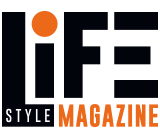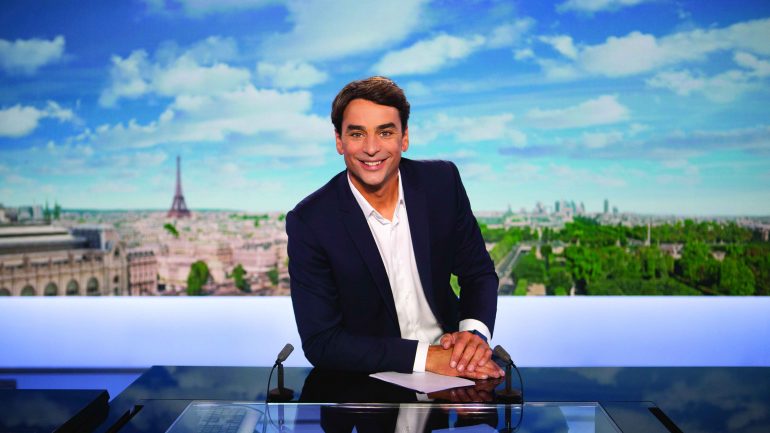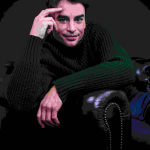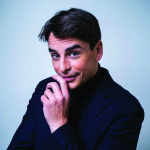What is unique about this 1 PM news edition that you took over almost four years ago? How have you made it your own?
The 1 PM news is the midday news hub. It’s a moment where attention and expectations aren’t quite the same as early in the morning or in the evening at 8 PM. France Télévisions’ news programs are complementary. Our editorial line at 1 PM focuses on raw news, analysis, and proximity. We have strong editorial choices, especially regarding consumer issues, which have become one of the main concerns of the French. We also focus on «solution journalism» with our «An Idea for France» segment, which has been a real success, highlighting initiatives and solutions for major societal issues such as agriculture, food, disability, the environment, aging, and more. It’s uplifting to shine a light on those who innovate and make a difference for others, improving everyone’s daily lives.
This year, we also launched a new segment around heritage and its history. It’s simply called «A Place, A Story.» This also reflects the «public service touch»: providing insight and perspective. Visiting Chambord, for example, but with a focus on its builder, Francis I. The 1 PM news is an incredible news program that resonates with me. It allows more room for naturalness, spontaneity, and a certain mood. That’s something I enjoy-being myself, 100%! I’m surrounded by contributors who form the «1 PM team.» And there’s a significant place for culture as well, with cinema and regular guests.
You don’t interact directly with your audience. How do you maintain a connection with your viewers?
The sense of closeness is immense. The TV news is the only program where you directly address viewers. It’s a «face-to-face» moment with 2.5 to 3 million people every day for the 1 PM edition. To strengthen this amazing bond of trust, my editor-in-chief Thomas Horeau and I initiated the idea of taking the 1 PM news on the road. Several times a year, we set up our cameras in a French town around a major theme: medical deserts, the decline of small businesses, coastal protection, purchasing power, etc., offering both a state of affairs and solutions. Every time, it’s a success – thousands of people come to see us and meet us. It’s my proximity boost, and honestly, it’s refreshing. I love meeting people and sharing their stories. It’s also what fuels me as we create the 1 PM news every day with all the teams. Having grown up in Blois and the Loire Valley countryside, I need this closeness. It’s also helpful for staying connected to the country’s mood.
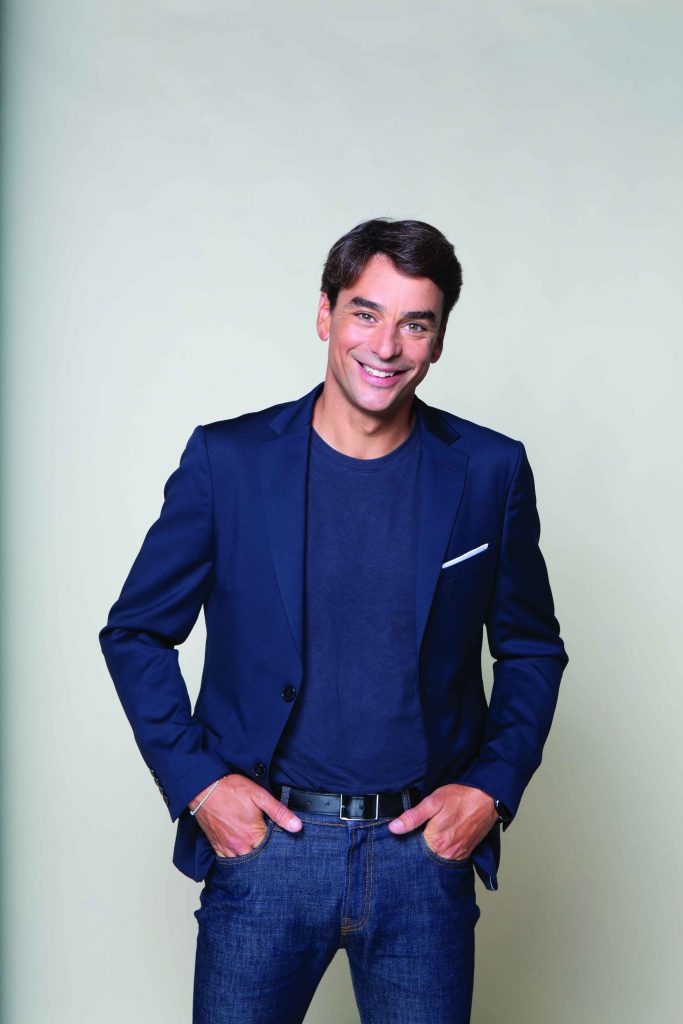
How has your career shaped the way you approach the news, and what is your vision for making information accessible and relevant to viewers?
Jacques Chancel often said, «You shouldn’t give the public what they like, but what they might like.» I find this quote extremely accurate. That’s what I try to do at my level, day in and day out. Providing clear, educational answers to complex current issues. Never being simplistic, always keeping in mind the importance of challenging our own thinking. My career is quite unconventional. I’m self-taught. With my high school diploma in hand at 18, I went to London, where I worked odd jobs before getting a break at Bloomberg TV. It was an extraordinary experience that changed my life-four years of learning the trade and meeting incredible people. I returned to France in 2005 for the launch of BFMTV with Alain Weill, then spent two years at i-Télé before becoming the backup anchor for David Pujadas at the 8 PM news. I was barely 29 years old and already had a great track record.
Ultimately, what is the role of a journalist in modern society, and what impact do you hope to have with your work on France 2?
Our role is crucial. Today, misinformation is everywhere, and there’s a loss of clarity between what’s true and what isn’t. Seventy percent of 15-34-year-olds use social media daily to get their news. There’s a real risk of minds being manipulated, as we’ve seen with Russia, the U.S. election, or in Sub-Saharan Africa. That’s where we come in. We provide accurate, verified, rigorous, and well-sourced information, always offering a balanced perspective. That’s also why news programs, which were once predicted to disappear, continue to thrive. At 8 PM, for example, the combined viewership of France 2 and TF1’s news broadcasts reaches 11 million people.
What do you do to unwind and relax? I hear extreme sports are your thing! (Laughs)
Yes, I love escaping and switching gears. Extreme sports make me feel alive. I’ve always had a taste for risk. It’s also what I love about my job-getting to explore extraordinary worlds and professions. Traveling to Mali with French special forces, skydiving over Mont Saint-Michel, or spending a day with researchers at the Pasteur Institute. It’s an incredible privilege we journalists have, and I’m still in awe of it.
If you had to radically change careers, what would it be?
I’d become an adventurer, perhaps? I love travel stories and epic journeys.
One of my favorites: In the Forests of Siberia by Sylvain Tesson.
Are you more of a passion-driven person or a reason-driven person?
Team passion! It’s probably one of my biggest flaws-I have a hard time staying still. I’m passionate about sports, travel, cinema… and good food!
I struggle to slow down, but with age, you also learn reason.
If you had to share a little secret with us, what would it be? (Smile)
I love gardening! Planting, sowing, digging, getting my hands in the soil… it’s invigorating and clears the mind. You don’t think about anything, just being in touch with nature. It feels great. By the way, did you know that when you’re in nature, your stress levels drop by 25%?
What would you wish for our LiFE Magazine readers?
The joy of curiosity! (Smile)
